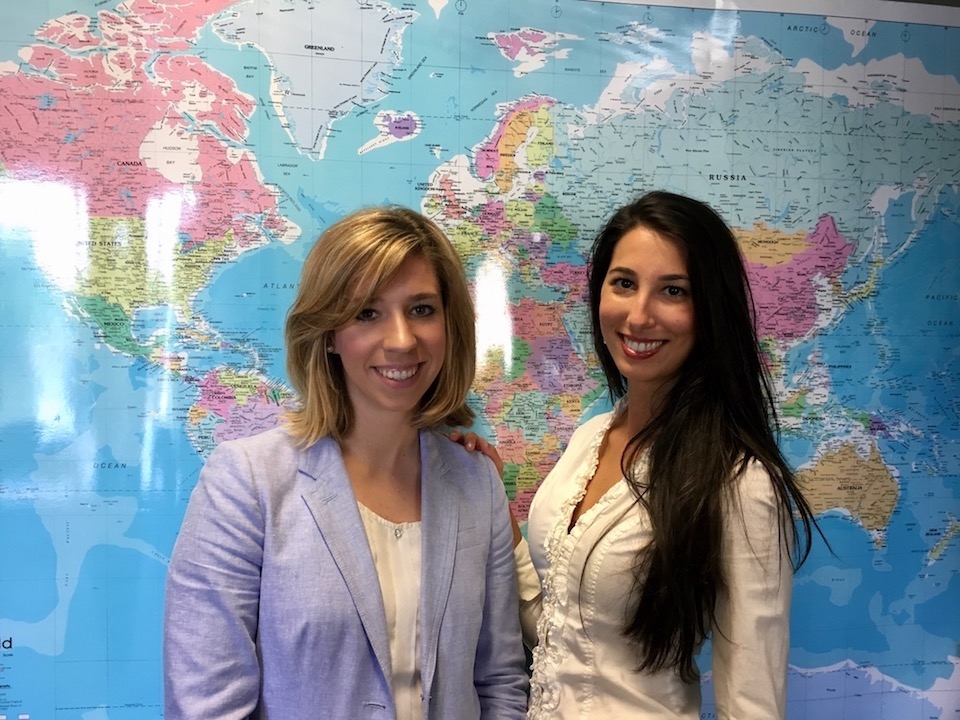
Ottawa Co-op Programs Give Students Competitive Edge
Photos by Jake Robillard
The age of technology is among us, and with it comes the ability to replace hardworking individuals with machines. Due to this massive industrial shift, as well as the fact that the baby boomer generation is still employed full-time, prospective employers have been forced to crack down and select candidates with the highest qualifications. In the past, people were able to acquire sustainable employment right out of high school.
Nowadays, a university degree or college diploma has become the bare minimum to even be considered for the same jobs our parents easily attained in the past. With the job market becoming increasingly narrower, it has become a necessity to immerse yourself in different extracurricular activities and to take job opportunities to build a set of credentials to impress future employers.
To find out more about how students in the Ottawa area preparing for their future careers, Ottawa Life had the pleasure of discussing the co-op experience with a Termeh Ataei, a Master’s of Communication candidate at the University of Ottawa.
 Ottawa Life: What was your reasoning behind enrolling in the co-op program at U of O and do you think your co-op job reflects your studies?
Ottawa Life: What was your reasoning behind enrolling in the co-op program at U of O and do you think your co-op job reflects your studies?
Termeh Ataei: As a Master’s student with previous work experience, my goal in joining the co-op program was to grow my network by meeting key professionals in the job market and gain valuable work experience. I was able to achieve that with my current position in marketing and communications. Another goal of mine was to go abroad and gain work experience in Europe – I will be able to achieve that on my next co-op work term in Spain.
What was the job hunt like?
The system that the University of Ottawa has put into place is straight forward and made it easy to find a job – even with a hectic work-study schedule like mine, I was able to search and apply for the jobs that interested me.
Of course, co-op is a lot more than just something to add to your resume. Do you feel like you were able to expand your professional network while on your work term?
Absolutely! Growing my professional network was one of my main goals in joining the coop program and I have achieved that. I’ve met professionals who are experts in their field and who were able to provide me with some extensive insight into the job market in which I would like to be a part of upon graduation.
For many university students in Ottawa, the opportunity to join a co-op program or obtain an internship is something that is easy enough but will drastically set them apart when it comes to competitive employment in the future. According to the University of Ottawa’s co-op website, roughly 1,000 students are admitted to co-op each year. The majority of co-op programs across many Canadian universities require a minimum GPA of 80% to stay in the program, however the opportunities that co-op placements offer are well worth the hard work. The types of co-op jobs available to students range from government work to the private industry to non-profits. Essentially, anything you could possibly be interested in is at your fingertips.
To further our comprehension of the true value of a co-op work term, Ottawa Life had the pleasure of speaking with two undergraduate communications majors from Carleton University, Nat Canham and Katherine Couture. Both Nat and Katherine are currently completing their second work terms. For Katherine, she is continuing her co-op work experience this fall. This is an option many co-op students are faced with, as often times students will take a work term during the year. This delays their studies by a semester or two in order to gain the experience that they need for future job prospects.
 Ottawa Life: With so many different aspects to each and every job, do you feel like your co-op placement accurately reflected your studies?
Ottawa Life: With so many different aspects to each and every job, do you feel like your co-op placement accurately reflected your studies?
Katherine Couture: My job is definitely very media oriented. The main project I worked on this summer was creating a video for our internal staff so I came across some concepts that we encountered in class, like a media plan.
How have you used these professional networking experiences to your advantage?
I was fortunate to have been placed within really great teams with amazing leaders and I have stayed in touch with many of my past co-workers. Most senior staff that I encountered during these work terms were very approachable and encouraged me to get in touch or connect with some of their contacts that work in areas I may be interested in.
In your opinion, what made your work term worthwhile?
For both work terms, the environment made it worthwhile. I was very lucky to be placed within teams that guide you, but also give you the space to grow and develop skills on your own. I am someone who initially needs directions to get started but enjoys working somewhat independently once I have figured it out. Moreover, although professional, the atmosphere was never strict which made it easy to connect with the people you work with. Both teams were very social. For example, we would sometimes go out to lunch together or celebrate birthdays. Both work terms have reinforced the notion that it’s often the people that shape your experience.
Based on your entire co-op experience, from the application/interview process to the actual work term, what is one take-away point you would give to future co-op students?
One take-away point I would give to future co-op students is to use the resources that [your university] gives you. Go see the advisor to review your resume, go for a mock interview. Especially if it's your first round. As for during the work term, make sure that you do valuable work, that you're not stuck filing and getting copies. Identify projects or tasks that you have an interest in and ask to help out. Do work that will develop your skills.
This is something a lot of students might be reluctant to do at first, but it is a pivotal asset to be able to engage with your colleagues on a creative level. It is also important to determine, prior to applying for a co-op job, what your objectives are. As easy as it might be to accept the first job that comes your way, take the time to reflect on whether you think the job will actually help you advance in your future career or if it is just a place holder.
As for Nat, she actually secured a co-op placement in Toronto, though she plans to return to Carleton to finish her studies. For some, the job they’re looking for is not offered through their school’s co-op program. Some institutions, like Carleton, offer the opportunity for students to go out and find their own summer jobs, which are then approved by the co-op office. This makes the world of possibilities even bigger.
Ottawa Life: With so many students trying to get into the work force, do you feel as though your co-op experience will actually set you apart from other individuals?
Nat Canham: I do. I now have excellent references that can vouch for my professional capabilities. I've also familiarized myself with processes and protocols that are common throughout the industry.
 I've heard that, in some cases, co-op students are given very little work and feel like their work term was a waste of time. Have you or anyone you know had this experience?
I've heard that, in some cases, co-op students are given very little work and feel like their work term was a waste of time. Have you or anyone you know had this experience?
I experienced this at the very beginning of my current position, and I overcame it by actively looking for opportunities to support colleagues within my own team and other teams. I think that many co-op students expect their workplace to accommodate them by creating and clearly outlining their work for them, so they sit and wait for work to fall into their lap. The reality is, however, that half the onus is on the student to find opportunities to assist their team.
In your eyes, did the job challenge you in ways that helped you grow?
It did. My growth in this role has been as much on a personal level as a professional one. I have faced challenges that frustrated and embarrassed me, and shook my confidence in myself and my work. As a result I am more self-aware, more mature, and better equipped to face similar problems in the future.
Finally, should the opportunity arise to stay and work full-time after you are done your studies, is that something you would be interested in?
Yes, I would be happy to work for this company long-term, though not immediately after I graduate, as I plan to pursue a master's degree.
This seems to be the case for many students, not just Nat. More and more students plan on pursuing a Master’s degree before looking for full-time employment. Nevertheless, the experiences they will gain from engaging in the co-op program will also help them get into a Master’s program, as they don’t just look at grades but also how you involved yourself outside of the classroom. Overall, current and future students who qualify for co-op at their respective institutions should strongly consider applying, boosting their competitive edge and overall making their portfolios more well-rounded.









